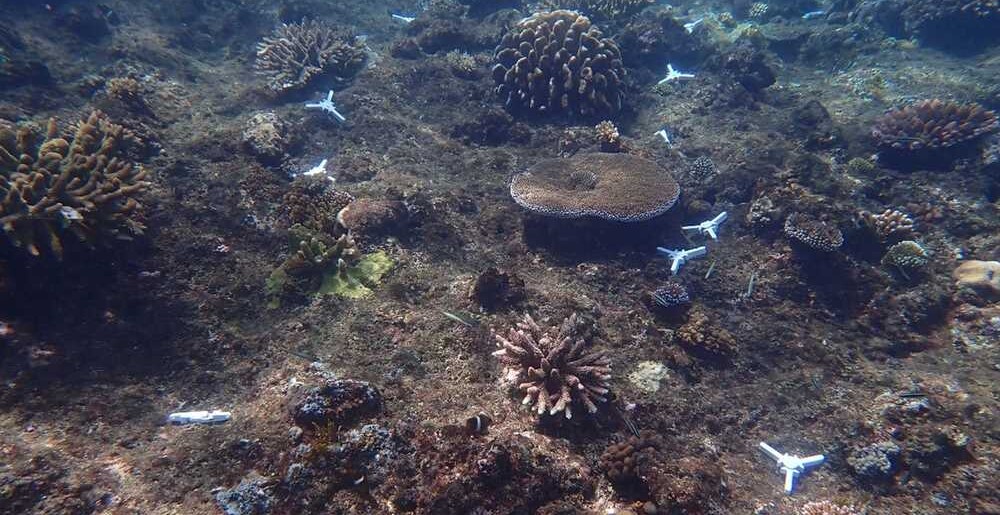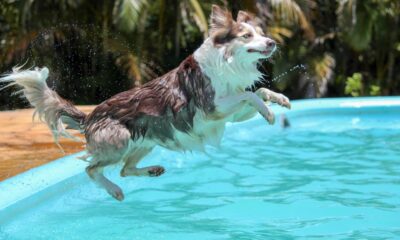Heroes
Maldives’ Mobile Lab Sparks Hope with 10,000 New Corals

Quick Smiles:
- 10,000 young corals were nurtured in the Maldives using a new mobile lab.
- This innovation offers a promising future for coral restoration worldwide.
- Local scientists achieved success without needing external expertise.
In the vibrant waters of the Maldives, a pioneering mobile coral spawning system has demonstrated its potential by nurturing 10,000 juvenile corals in a remarkably short time.
This achievement not only kindles hope for island nations battling coral reef loss but also affirms the value of the $1.5 million investment in this technology.
The system, known as ReefSeed, was co-developed by the Australian Institute of Marine Science and the Maldives Marine Research Institute.
ReefSeed is ingeniously designed as a portable, seaside laboratory that fits within a shipping container.
It enables local marine scientists worldwide to spawn and cultivate coral for reef restoration in weeks instead of months, without the need for external power or divers.
The G20 Coral Research and Development Accelerator Program funded this project with a $1.5 million grant.
Recently, the system underwent a critical test, which it passed with flying colors.
The Maldives Marine Research Institute utilized a single ReefSeed unit to produce 3 million larvae in one spawning season, resulting in 10,000 young corals.
These corals were then distributed via 720 seeding devices across nine different reefs, all without the presence of external experts. This success highlights the system’s user-friendliness.
Dr. Muhammad Azmi Abdul Wahab, a coral reproduction scientist and ReefSeed co-lead, expressed the goal of making ReefSeed accessible to more island communities.
“We have learned much from working with colleagues at the Maldives Marine Research Institute, which will help us make improvements in the training and refinements in the way the system itself can work,” he shared.
The spawning took place on Maniyafushi island in the South Malé Atoll of the Maldives.
Dr. Wahab emphasized the significance of innovations like ReefSeed, stating, “Coral reefs in the Maldives sustain communities and livelihoods but, like coral reefs globally, they have been impacted by bleaching driven by climate change. Innovations like ReefSeed can play a role in supporting restoration efforts providing hope for these communities.”
To enhance their understanding, scientists from the Maldives were invited to the Great Barrier Reef to observe the autumn spawning season alongside their Australian counterparts.
This experience, akin to witnessing a giant snowglobe in motion, provided them with valuable insights into coral spawning techniques.
By sharing this success story, we celebrate a remarkable step forward in coral restoration efforts.

-

 Cute Animals2 years ago
Cute Animals2 years agoPuppy Love Patrol: Service Dog Swoons Over K9 Officer Neighbor
-

 Cute Animals2 years ago
Cute Animals2 years agoHugs, Hooves, and Happiness: Newborn Donkey Steals Hearts by Demanding Affection [Video]
-

 Cute Animals2 years ago
Cute Animals2 years agoWATCH: A German Shepherd’s Surprising Parenting Instinct for Lost Ducklings!
-

 Cute Animals3 years ago
Cute Animals3 years agoPetty Pup Pulls Off Hilarious Bone Heist [Video]
-

 Heroes2 years ago
Heroes2 years agoA Lost Dog’s Bark Leads to a Lifesaving Discovery
-

 Cute Animals2 years ago
Cute Animals2 years ago“Pure Love”: Adopted Rescue Dog Can’t Hide How Grateful He Is [Video]
-

 Cute Animals2 years ago
Cute Animals2 years agoTiny but Mighty: Cat with Dwarfism Becomes Internet Star as Owners Adapt Backyard for Her Comfort
-

 Cute Animals2 years ago
Cute Animals2 years agoAdorable Puppy Steals Hearts After a Tiring Swim [Video]